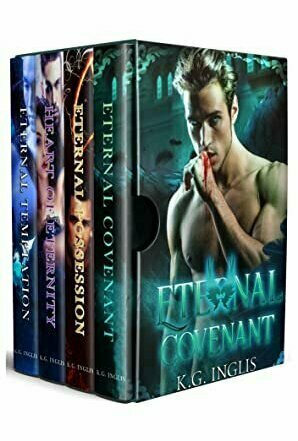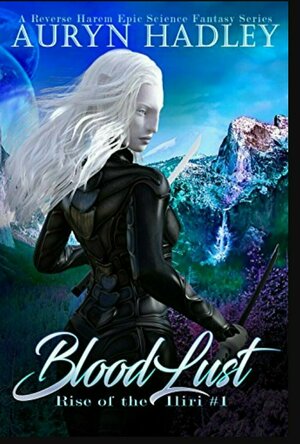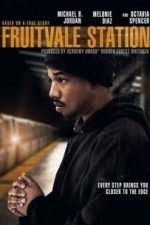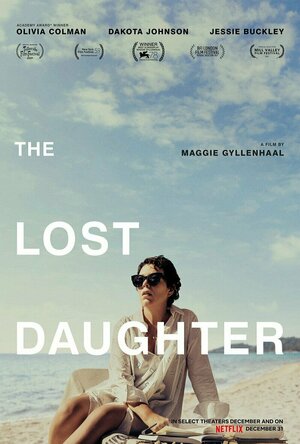Kirk Bage (1775 KP) rated Fruitvale Station (2013) in Movies
Aug 6, 2020
Borderline superstar Michael B. Jordan owes his career to Ryan Coogler, which began in earnest in 2013 with the strong effort of true story Fruitvale Station, highlighting the life and final moments of Oscar Grant, who was one of a tragically long list of innocent young men murdered by the police in modern America. Since then he has gone on to star as the eponymous Creed and as the popular Erik Killmonger in Black Panther, making him more or less the most famous black actor under forty currently at work.
I mention him first because having seen the other two films first, I have to admit I wasn’t quite getting it. I mean he is fine in both movies, but nothing world beating. Then you go back to his acheivement in the earlier film and begin to see what he might be capable of given the right scripts. He pretty much embodies Oscar Grant to a degree you believe you are watching a documentary. Which is the major plus point of Ryan Coogler’s direction also.
By pulling us in to the family life of Oscar, as if we were a fly on the wall, we become connected to their story as if we were part of that inner circle, making the inevitable horror of events hit home all the harder. We watch mundane events and conversations take place with a shadow of foreboding that never crosses over into foreshadowing or signposting. The balance is very nicely done.
Melonie Diaz, as girlfriend Sophina, and especially the ever wonderful Octavia Spencer, as loving but grounded mother Wanda, offer solid support, but the camera clings to Jordan by choice, asking us to place ourselves in his shoes and feel the empathy first hand. It is a sober journey, almost totally devoid of directorial flair, which is both a strength and a weakness, ultimately.
With such an awful, heart-rending subject, it can be difficult to remove yourself into a dispassionate view of a film artistically, as the message overpowers your emotions. The best thing that can be said in this case is that the drama never crosses the line of sentimentality or overkill; it merely presents events as they were and asks you to draw your own conclusions. Having said that, I can’t over-praise it simply because the subject needs to be seen, heard, discussed and acted upon with total immediacy in the real world.
This film is already seven years old, and the issues are more pertinent than ever before, as the BLM movement rages all over the world, but especially in the USA, where the culpability and violence of police officers must be addressed and resolved before the loss of one more innocent life. The message delivered by the film is clear and unambiguous – it has to be heeded. And in that sense it is an indespensible film of great power, I would advise you to see.
And with that, it seems a moot point to criticise it, because there isn’t anything negative to say that would say anything useful. I would just say again that it doesn’t quite make the grade of the best 200 films since the Millennium. Whereas, BlacKkKlansman does. An unfair comparison in many ways, but an obvious one in others. See both. Think about them, do what you can, and help make hatred and prejudice a sad fact of history.
Decinemal Rating: 70
Lee (2222 KP) rated The One and Only Ivan (2020) in Movies
Sep 2, 2020
There were no talking animals in the real version of events this is based on, but there was a silverback gorilla named Ivan,
Stolen as an infant from the rainforests of Congo and made to live in a tiny cage, while regularly putting on a show for visitors to a shopping centre for 27 years in total. This being a Disney movie though, the cruelty of that is glossed over somewhat, with funny animal friends with wacky voices aiming to brighten things up. Although, the message that his captivity was wrong is certainly there for all to see, and hopefully to be appreciated.
Bryan Cranston is Mack, the showman responsible for raising Ivan and making him a star, bristling when enthusiasm and “the show must go on” spirit, despite dwindling audiences and occasional animal illness. From flashbacks, it’s clear that Mack loves Ivan, his passion for raising him having cost him his marriage. But now that Ivan is the star of the show at the mini circus in the mall, complacency has set in, and Mack cannot see that all Ivan now truly wants is his freedom.
In an attempt to try and bring in the crowds, Mack brings in a baby elephant, which takes over top billing status from Ivan, much to his disappointment. Elderly elephant Stella (Angelina Jolie) takes the new baby under her wing, and during some late night storytelling sessions between the animals, we learn that Ivan had a sister back in the jungle, and was actually a budding artist, using mud to paint on rocks. When Julia, young daughter of one of the helping hands at the circus, gives Ivan some of her old crayons and finger paints, Ivan begins drawing again, and is soon moved back up to top billing in the show.
When I first saw the trailer for The One and Only Ivan, I was totally on board. That is, until the animals started talking. I thought the CGI remake of The Lion King last year was just terrible, and the Lady and the Tramp remake which landed on Disney+ earlier this year was even worse. Realistic looking animals simply cannot convey emotions like their traditionally animated counterparts, while retaining their realistic looks. But The One and Only Ivan thankfully feels so different, much better than those movies do. And a lot of that is down to the voice cast.
Sam Rockwell is Ivan. Perfectly cast, he brings a real much needed gravitas to the sombre silverback. Along with the stray dog (Danny DeVito) that visits Ivan’s cage and sleeps on his belly at night, they form a delightful double act, discussing freedom, and the fortunes of the circus. With a lot of time being spent with the animals in their cages, the movie does drag a little at times, but then maybe that’s the whole idea – portraying the solitude and boredom experienced when you do not have your freedom.
As if it wasn’t already clear enough, The One and Only Ivan nicely drives home the important message that animals really shouldn’t be kept in pokey cages for long periods of time, and certainly not for decades either. The end of the movie reminds us that Ivan’s story is actually based on truth, as we’re shown photos of the real Ivan, who stayed with a family before becoming a circus act. Seeing the photos of his eventual release to the vastly improved setting of Atlanta zoo, where he lived out the rest of his days, certainly proves to be very emotional, and a fitting end to a surprisingly enjoyable family movie.

Yellfy Sports - Your Teams Live Scores, News
Sports and News
App
Yellfy Sports App is 5 star rated and the best sports app for scores, news, stats, live video and...

The Eternal Series - Box Set Books 1 to 4
Book
FOUR BOOKS… PLUS TWO SHORT STORIES Eternal Covenant Eternity Never Looked This Good Cassie...
Paranormal Romance Boxset

Hello Next! Forget your ex.
Entertainment and Lifestyle
App
Just broke up? Haven’t seen your ex for a while but your heart is still broken with no one there...

Amnesia: Memories Premium Edition
Entertainment
App
The Premium Edition, which includes all the scenarios, as well as the new one, is available at...

Ease My Mind by Shout Out Louds
Album Watch
In their 15 years as a band, Shout Out Louds have toured the world many times. The band played a...
alternative rock

Bloodlust (The Rise Of Iliri #1)
Book
"Bloodlust, and the Rise of the Iliri series as a whole, will blow you mind, break your heart, and...
Young adult Vampire Vampyre Ilirri Young adult Teen
Bob Mann (459 KP) rated Sweetheart (2021) in Movies
Sep 20, 2021
Positives:
- What a great ensemble cast! It's all headed up by Nell Barlow, amazingly in her feature debut. Nell manages to perfectly deliver the hair-pullingly frustrating unpredictability of a teenage girl: always planning to go off doing something worthy like "knitting jumpers for elephants in Indonesia". But she manages to keep the portrayal just the right side of parody, not straying into 'Kevin and Perry' territory. "What's wrong with you?" asks her mother. "I'm 17. Everything's wrong with me" she replies. It's an immaculate performance for someone so young.
- Jo Hartley is also fabulous as A. J.'s mum, a lost soul struggling with her own worries, without having those of AJ to add to them. It's not portrayed as a typical 'Mum v Teen' battle, but beautifully nuanced. "Just because you're a lesbian now, it doesn't mean you have to dress like a boy" she pleads with A. J.
- If you're trying to place her, Ella Rae-Smith was the striking girl in the baseball cap in Netflix's "The Stranger". She is also wonderful here, as the 'hot girl' who you think has it all but is underneath deeply troubled and conflicted. A sex scene (beautifully lit and filmed by Emily Almond Barr and Matthew Wicks) manages to show absolutely nothing but is deliciously erotic as a result.
- The writing by Marley Morrison feels very autobiographical. And, as I found through reading this Guardian article about Morrison's gender-journey, there is a lot of personal experience in here. It's clever that the film is claustrophobically set in the remote holiday park (actually the real Freshwater Beach Holiday Park near Bridport on the Dorset coast). If it had been set in a big city like London, AJ could have constantly fled from her feelings, never resolving them. Here, she is constantly running into Isla.... there is no escape.
- I also very much liked the relationship written between A. J. and Steve. Steve is almost the safety valve on the pressure cooker, always helpfully allowing some steam to escape. It adds warmth to the story.
- For such an indie picture, there's a range of great tunes on the soundtrack: mostly from bands I have never heard of (probably making it affordable). I'm not sure if there's to be a soundtrack album released, but it's worth a listen if so.
Negatives:
- I wasn't fond of the sound mix on the film. Some of the dialogue was indistinct.
- A. J. gives us an occasional running commentary of her thoughts as a voiceover. Regular readers of my blog will know my thoughts on this subject! I'm not sure if it added much to the story: a 'show-not-tell' approach would have been my preference.
Summary Thoughts on "Sweetheart": I likened this film to 1980's "Gregory's Girl", and that's a great compliment. That movie made stars out of John Gordon Sinclair and Clare Grogan. I'd predict similar great things for Nell Barlow, Ella Rae-Smith and particularly for writer/director Marley Morrison. I'll very much look forward to Marley's future projects.
It's a cracking little British film. It deserves a major cinema release, but I suspect this is one that you might need to hunt out at your less mainstream cinemas. But please do so - it's well worth it. Very much recommended.
(For the full graphical review and video, check out #onemannsmovies on the web, Facebook and Tiktok. Thanks.)
BankofMarquis (1832 KP) rated The Lost Daughter (2021) in Movies
Feb 17, 2022
Such is the case with THE LOST DAUGHTER, Maggie Gyllenhaal’s film Directing debut (she is also Oscar nominated for Adapted Screenplay) that follows the emotional journey of a College Professor (the great Olivia Colman) on Holiday in Greece who is forced to confront her past decisions amidst the emotional toil that these decisions have created.
Normally, these introspective, “Art House” films are not my cup of tea and during the first half of this film, I did find myself wandering a bit. This is because Colman’s character of Leda arrives on-screen at the onset of this film heavy with emotional (almost crippling so) baggage and it is almost too much to bear…which is the point. The movie, then, peels the layers back slowly to reveal why.
It is, yet again, a tour-de-force performance by Colman - who just might win ANOTHER Oscar for this work - it is that strong without being show-offey (if that is a word). Colman becomes Leda and delves strongly into the introspection, guilt, hurt and confusion that this character has. She allows the character to breathe (sometimes in gulps of crying). It is the type of character (and performance) that film today rarely allows time for on screen.
Credit for this has to go to Directer/ScreenWriter Maggie Gyllenhaal who adapted Elana Ferrante’s novel into a quiet, retrospective film. The adaptation works well for someone who has no prior knowledge of the novel and the direction and camerawork of this film is unwavering in it’s look into a character that is flawed and at times unlikeable. It is a strong Directorial and Screenwriting debut for Gyllenhaal.
Jessie Buckley is also Oscar nominated (for Best Supporting Actress) for her role as the younger Leda - a character who’s actions strongly affect the older Leda. While this character is not as nuanced as Colman’s version of Leda, she still is strong and Buckley’s performance is just as confident, self-centered, and fierce showing the roots of the person that would become Colman’s character. This is only the 3rd time in Oscars history that 2 actresses have been nominated for Academy Awards for playing younger and older versions of the same person (Kate Winslet/Gloria Stewart playing Rose in TITANIC and Kate Winslet/Judi Dench playing Iris in IRIS).
Ed Harris shows up as the proprietor of the space that Leda is renting in Greece and is a welcome presence (as always). The surprises to me in this film were the performances of Dakota Johnson and Jack Farthing. Johnson is proving that she is more than just the “50 SHADES” girl and spars with Colman quite well, more than holding her own. Farthing, who played the cold and distant Prince Charles in SPENCER is the husband of the younger Leda and he is the polar opposite of Prince Charles - open, loving and emotional. It is fun to see 2 clearly differing performances by the same actor. Farthing is someone to keep an eye on.
As is Gyllenhaal, Colman and THE LOST DAUGHTER. It is a strong piece of film-making and not an easy watch. But, if you can click into the emotion of this flawed character - and stick with this film through the ugliness and mistakes that Leda selfishly makes, you will be rewarded with a character study, the likes of which is rare in film today.
Letter Grade: A-
8 stars (out of 10) and you can take that to the Bank(ofMarquis)



